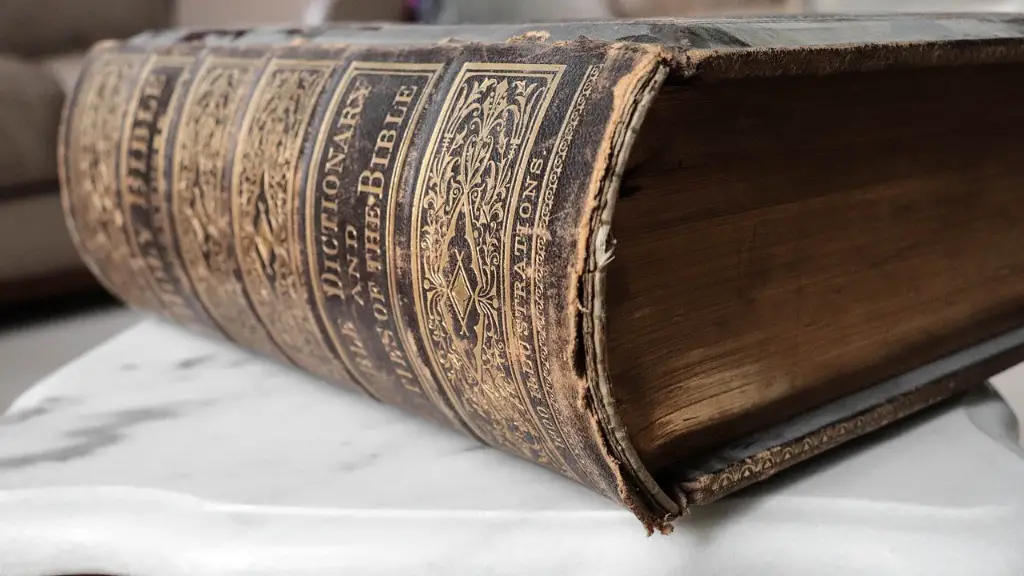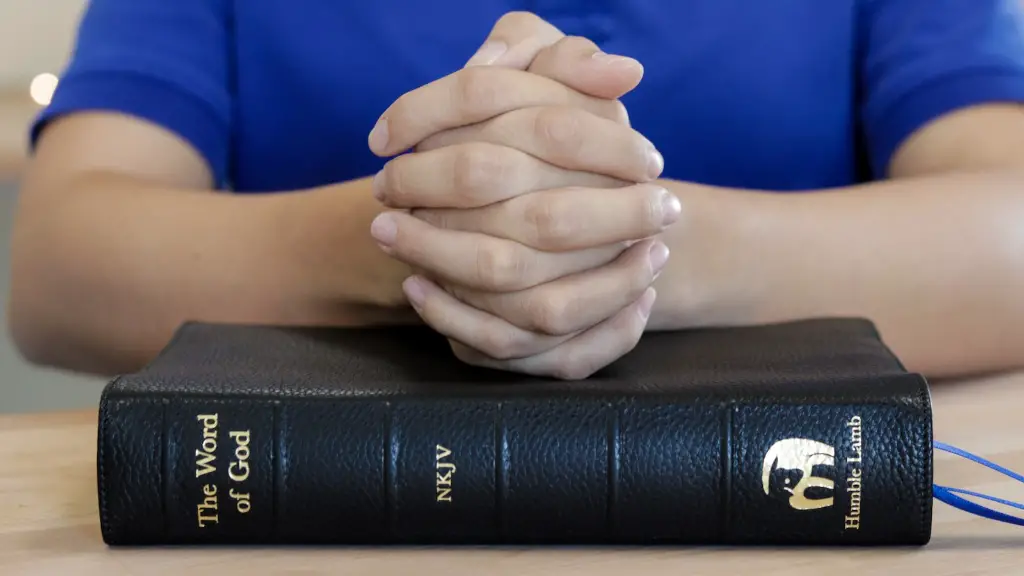It is a well-known fact that Moses is one of the most important figures in the Bible, and the Five Books of Moses, often referred to as the Torah, is the first part of the Tanakh, the Hebrew Bible. One of the burning questions that often arises when thinking about the Torah is, how many books in the Bible did Moses write?
The answer to this question is often misunderstood, with many people believing that Moses wrote the entire Five Books of Moses himself. However, this is not accurate. It is likely that Moses wrote most, if not all, of the first four books, referred to as Genesis, Exodus, Leviticus, and Numbers. However, the fifth book, Deuteronomy, was likely not written by Moses, but by a later scribe or redactor.
This is a point that many biblical scholars agree on, so it is certain that at least four books in the Bible can be attributed to Moses. The dispute that arises is whether or not Deuteronomy should also be included. Different scholars have different theories on this, each with a basis in biblical interpretations.
The first theory states that the events described in Deuteronomy do not match up with those described in other books of the Pentateuch, leading many to think that the text was written much later than the other four books. This theory is bolstered by evidence from the Dead Sea Scrolls, which suggests that some of the passages were written much later than the other books of the Pentateuch.
The second theory is that the style and content of Deuteronomy are much different from the other books of the Pentateuch. This has led some scholars to suggest that the book was put together from multiple sources, and thus could not have been written by Moses alone. This is further supported by evidence that Deuteronomy contains material not present in the other books of the Pentateuch.
The third theory suggests that the entire Pentateuch was written by Moses, but the various books were compiled and edited by later scribes. This explanation, however, has been largely discounted by scholars due to its improbability, as it requires that later scribes meticulously spliced together sections from different books and passages, a task that is far beyond the abilities of a human.
The Context in Which the Bible Was Written
In trying to answer the question of how many books in the Bible did Moses write, it is important to consider the context in which the Bible was written. Over the course of its long history, the Bible was passed down through oral tradition, mixed with mythology and folklore, and finally written down and translated multiple times into various languages. This means that even if Moses himself wrote the Five Books of Moses, they would have gone through several revisions by later scribes.
The landscape of the Bible was shaped by different cultures and beliefs, and with so many moving pieces, it is impossible to determine with certainty who wrote what and when. Thus, the question of how many books in the Bible did Moses write may never be answered definitively.
The Renewed Focus on Moses and His Role in the Bible
In recent years, however, there has been a renewed focus on Moses and his role in the Bible. This renewed focus has led to a greater appreciation for his writings and the influence that he had on the development of Judaism. Furthermore, there is a growing interest in the ancient Near East, which is providing scholars with new evidence to examine the writings of Moses and the Pentateuch as a whole.
In light of this renewed interest, scholars are beginning to take a closer look at the texts written by Moses, in addition to the texts attributed to him. This is leading to new insights into how the Five Books of Moses were written, and to a better understanding of Moses’s place in the Bible. It is also shedding light on how the texts were transformed over time and how they were received by different cultures.
The Significance of the Five Books of Moses
Regardless of how many books in the Bible were attributed to Moses, one thing is clear: the Five Books of Moses are significant in the Bible and the history of Judaism. For thousands of years, these texts have served as the foundation of the faith, providing essential guidance to believers and providing a glimpse into the history and beliefs of the ancient world.
They also provide a valuable insight into the values and beliefs of Moses himself, as he was one of the primary contributors to the Bible. This makes him an even more important figure in biblical history, and provides a deeper understanding of the four books of the Pentateuch that were likely written by him.
The Ongoing Debate About the Authorship of the Pentateuch
The question of how many books in the Bible did Moses write is likely to remain a subject of debate for many years to come. Many scholars still disagree on what books of the Pentateuch were written by Moses and which were written by later scribes, and the research and analysis of these texts is still ongoing.
What is certain, however, is that the Five Books of Moses have had a major influence on Judeo-Christian culture, and that Moses played a huge role in its development. He may not have written every book in the Pentateuch, but his influence is still felt in the Bible today.
The Reappraisal of Moses and His Teachings
In recent years, there has been a renewed focus on Moses and his teachings, with many looking to the writings attributed to him for guidance and inspiration. This is especially true among Jewish scholars and believers, many of whom are seeking to uncover deeper meanings in the Five Books of Moses and find new ways to interpret them.
This reappraisal of Moses and his teachings has also led to a better understanding of the Pentateuch as a whole. By looking more closely at the authorship of the various books, scholars are increasing their understanding of the interplay between different texts and the process by which the Pentateuch was assembled.
The Impact of the Five Books of Moses
It is clear that the Five Books of Moses have had a huge influence on the Bible and the development of religious and spiritual traditions throughout the world. Whether or not Moses wrote all of the books, he played an important role in crafting the biblical narrative and in shaping the beliefs of many believers today.
Furthermore, by understanding the authorship of the Pentateuch, scholars can gain a better insight into how the Bible was written and how it has been received and interpreted throughout the centuries.
The Interplay Between Different Religious Beliefs
Finally, by looking at the Five Books of Moses, it is possible to understand the interplay between different religious beliefs and how these various beliefs helped shape Judeo-Christian culture. By considering the writings and teachings of Moses, as well as other ancient writers, it is possible to gain greater insight into the development of biblical texts, as well as the formation of Judaic and Christian religions.
Ultimately, it is impossible to answer the question of how many books in the Bible did Moses write with certainty. However, by considering the context in which the Bible was written, scholars have a better understanding of the authorship of the Pentateuch and the impact that Moses had on its development.





